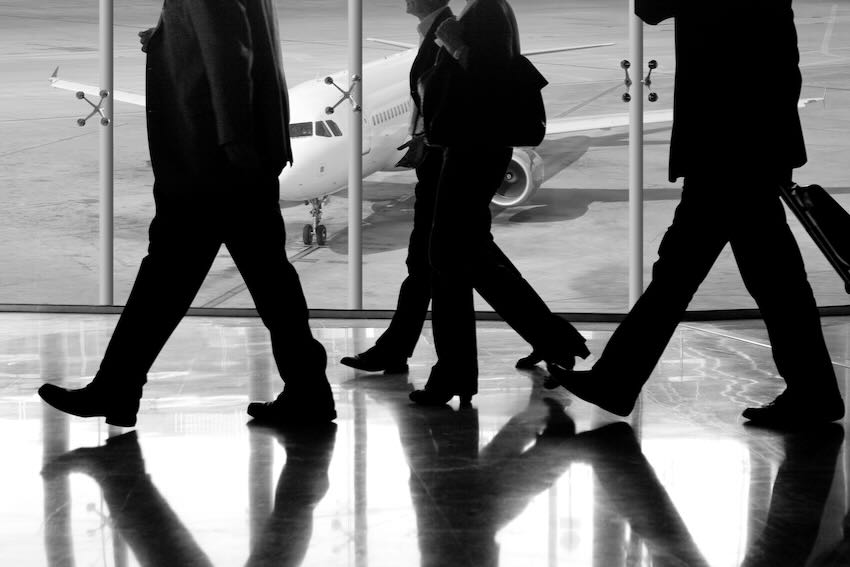
UK: The Institute of Travel Management’s Road to Net Zero event, held this week, found that data and a change of culture was key to the travel industry achieving its sustainability goals.
The event, which was attended by 120 travel buyers, industry experts and suppliers took place at ME London on The Strand.
The Road to Net Zero agenda had sessions which covered the implications of regulations such as CSRD, data collection and reporting, traveller behaviour, buyer challenges and culture.
One of the key takeaways from the day was that culture within the industry would have to change to achieve sustainability targets for travel programmes and while this change could come in small steps, ultimately it’s the leaders who set expectations for how a business is operated.
Travel buyers had lots of questions about how to get travellers to “make the right choice” with some even suggesting that perhaps they will have to eliminate certain suppliers to force the issue.
Philip Charm co-founder and CEO, Clarasight discussed the idea that data should be used to forecast, as well as using it optimise future travel programmes for sustainability – closing the gap between intention and action. Charm noted that businesses needed to treat emissions data “with the same rigour as you treat financials”.
Pippa Strasser-Ganderton, director ATPI Halo sustainable travel & events solutions Direct ATPI noted while cost was king when it came to making sustainable choices, a handful of companies did put sustainability above cost – all of them were in the financial sector.
One session looked at accommodation and it was agreed that hotels have a real opportunity to shine when it comes to sustainability in the managed travel space – whether part of a chain or a smaller offering hotels offering sustainability options beyond carbon reduction such as biodiversity, water reduction and DEI will be in a position to flag this on OBTs and travel programmes – offering a real sustainable choice for the traveller.
Eve Smith change management and communications lead FCM also noted that while OBTs have information on sustainable choices there is very little information the traveller can see “behind the curtain” – and actually at the point of sale do any of us actually know how sustainable the room we have bought is?
FMC Consulting hosted a session explaining CSRD regulations and warning travel managers that although there was no need to panic, there is a definitely need to “get on with data collection to be ready for when it is needed”.
Glenn Thorsen global sustainability lead FCM Consulting pointed out that while it may seem daunting, actually a lot of companies are already collecting this type of scope 3 data.
One buyer said that no matter how much sustainability is talked about over the years, how can companies change if the head and management level are still flying business class and staying in more opulent hotels ? How can we change when the culture stays the same? However the buyer also noted that people are travelling less but for longer periods and asking where is the most central place to meet and where is the most direct. So there is some change in behaviour.
Another buyer pointed out said if small changes are made – such as recycled coffee cups in the workplace – that small action won’t “save the world” but when these people travel they are more likely to make sustainable choices. “Introduce small things and changes will happen,” was the message.
Sally Higgs travel and events sustainability manager Festive Road said that even if sustainability was in the top three priorities travel managers would need to “nudge leadership teams and keep reminding them about sustainability in business travel”.
Brad West, head of partnerships, Travalyst, which is making moves into the business travel sector also noted that 65 per cent of travellers would feel better about staying in accommodation with sustainability certification – the group recently announced it would be using its Independent Advisory Group to assess sustainability certifications flagged on its partners’ platforms. He said in the next six months Travalyst would have a master list of independently checked certifications.
The event was hosted by ME London, of Melia Hotel Group, which is rolling out its carbon neutral events across its portfolio.
All delegates were asked to submit how they travelled to the hotel and Direct ATPI will help offset the carbon footprint.
Key takeaways to achieving a sustainable travel programme:
Hotels have an opportunity to shine with their sustainability offerings, beyond carbon emissions;
Stakeholder engagement;
Bring sustainability to the table – it changes the dynamic of the conversation;
Don’t just wait for the data – start changing the culture;
How people may have to use ‘lack of data’ for reporting purposes;
The idea that a travel programme could be divided into 20 per cent people, 30 per cent planet and 50 per cent commercial;
Treating emissions like your financials;
The eco cycle – that we need to share the responsibility;
Help breach the gap between intention to action;
Look at cost vs carbon emissions and also ROI vs was carbon emissions. Was the trip worth it from a planet POV?
Speakers included Brad West, head of partnerships, Travalyst, Sally Higgs, travel and event management sustainability manager Festive Road, Philip Charm co-founder and CEO, Clarasight, Glenn Thorsen global sustainability lead FCM Consulting, Eve Smith change management and communications lead FCM, Pippa Strasser-Ganderton, director ATPI Halo sustainable travel & events solutions Direct ATPI and easyJet’s Lahiru Ranasinghe, head of net zero.
Image: Rob Wilson on Unsplash

